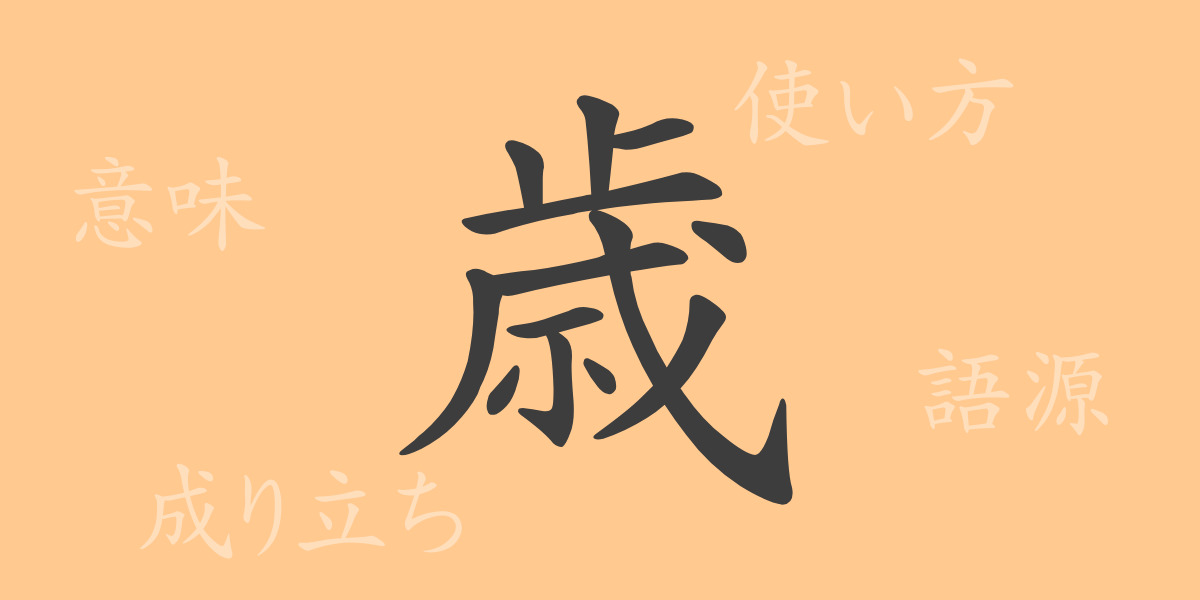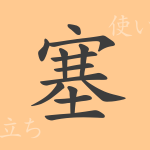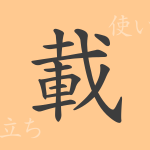As we grow older, new “歳” (sai) are added to our lives. This kanji not only indicates age but also symbolizes the passage of time and growth. This time, we delve into the deep history and meaning of the common-use kanji “歳” (sai), as well as its usage rooted in our daily lives.
Etymology of 歳 (sai)
Exploring the origins of the kanji “歳” (sai) takes us back to ancient China. Originally, this character was related to “穗” (sui), meaning “grain,” combined with “夕” (yū), which means “evening” and signifies “year.” Over time, “歳” (sai) came to be used to mean “age” or “yearly cycle.”
Meanings and Usages of 歳 (sai)
The kanji “歳” (sai) is used to represent age or annual periods. In official documents and legal terms, “歳” (sai) is often used, while in daily conversation, “才” (sai) may be used to indicate age. Additionally, “歳” (sai) can denote seasons or periods, as seen in expressions like “歳末” (saimatsu, year-end) and “歳時記” (saijiki, almanac), indicating the end of the year or seasonal milestones.
Reading, Stroke Count, and Radical of 歳 (sai)
The kanji “歳” (sai) has various readings and basic information that contribute to its rich meaning:
- Reading: In the on’yomi reading, it is “サイ” (sai), and in the kun’yomi reading, it is “とし” (toshi).
- Stroke count: “歳” (sai) has a total of 13 strokes.
- Radical: The radical is “止” (とめる, tomeru).
Idioms, Phrases, and Proverbs Using 歳 (sai) and Their Meanings
There are many idioms, phrases, and proverbs in Japanese that include “歳” (sai). These expressions vividly depict the flow of time and milestones in life.
- 歳月人を待たず (さいげつひとをまたず, saigetsu hito o matazu): Time waits for no one.
- 歳末 (さいまつ, saimatsu): The end of the year, especially December.
- 歳暮 (せいぼ, seibo): The custom of giving gifts at the end of the year or the gifts themselves.
- 年歳 (ねんさい, nensai): A year or age.
- 数え年 (かぞえどし, kazoedoshi): A traditional way of counting age, where a person is considered one year old at birth and adds a year with each New Year.
Conclusion on 歳 (sai)
The kanji “歳” (sai) not only indicates our age but also plays a crucial role in expressing the passage of time and life’s milestones. From ancient times to the present, the meanings embedded in this single character have deeply rooted themselves in our culture and language, making it an indispensable part of Japanese life. As time passes, through this kanji, we reflect on the past and step into the future.

























